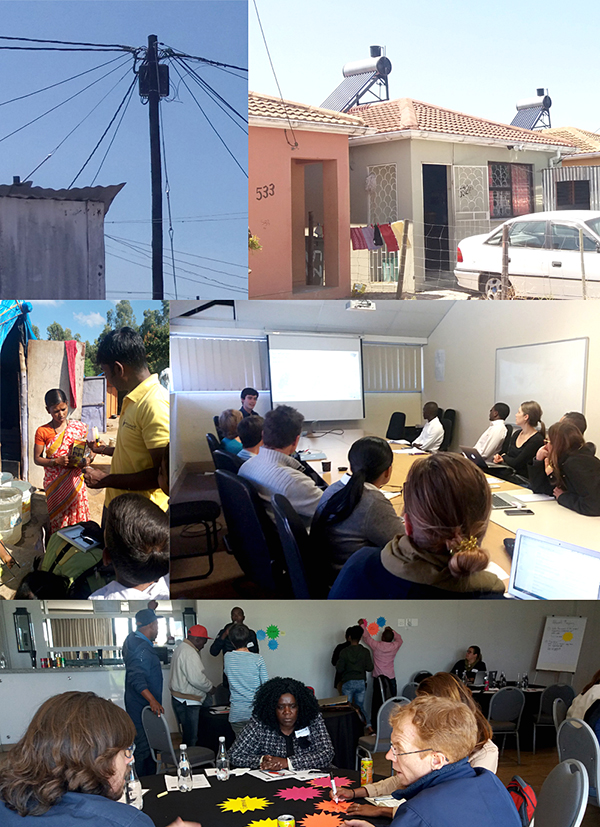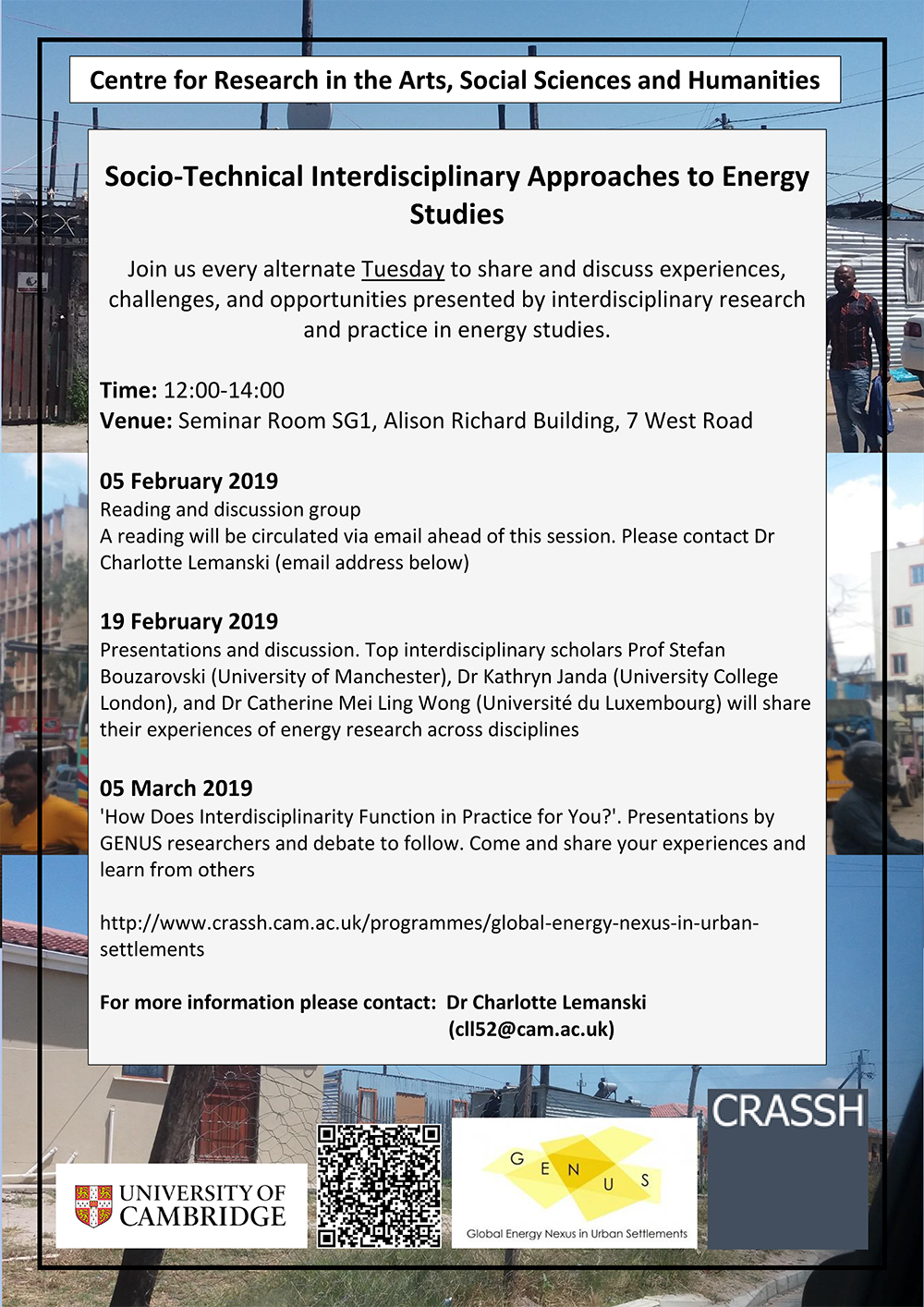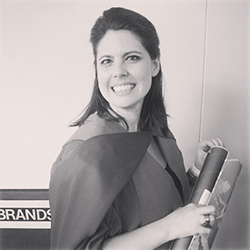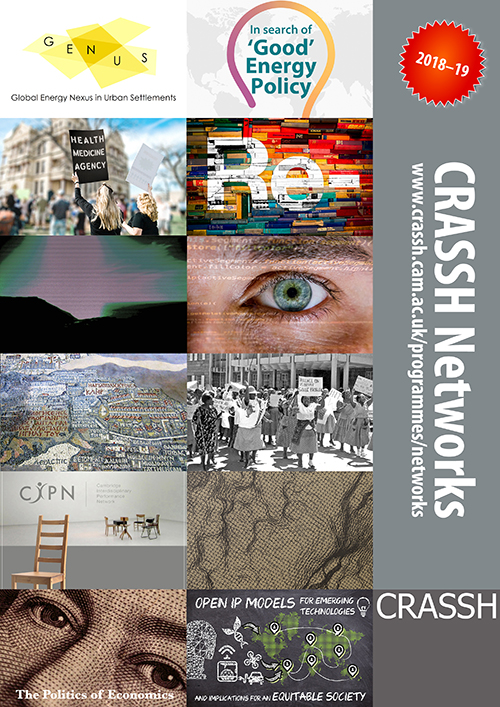Global Energy Nexus in Urban Settlements (GENUS) is one of twelve interdisciplinary CRASSH Research Networks running fortnightly seminars in the 2018–19 academic year. We asked co-convenor Ruth Massey to introduce the activities and aims of this new network.

Q. Ruth, how did GENUS come about?
The Global Energy Nexus in Urban Settlements network (GENUS) was formed in early 2018 in response to the growing need for improved interaction, collaboration, and communication across various disciplines working on energy and urban settlements, particularly in the Global South. This network responds to widespread knowledge that the world faces an energy crisis (i.e. natural resources cannot maintain current energy demand) that is particularly acute in the rapidly expanding urban areas of Africa and Asia.
GENUS has two core aims: 1) Conducting research on sustainable and innovative forms of energy for urban dwellers and 2) Implementing an interdisciplinary approach to research that both values and critiques disciplinary difference.
Q. By definition, a CRASSH research network has an interdisciplinary question at its core. What’s yours?
Alongside practicing an interdisciplinary approach to our research on urban energy, we are also committed to critiquing assumptions that interdisciplinarity is universally beneficial, while also developing models that address the practicalities of interdisciplinary research. Our network explicitly focuses on addressing the practical challenges of interdisciplinary research as a core challenge.
Q. Could you tell us a bit more about this year’s convenors, speakers and attendees and the perspectives they bring to the discussion?
The entire GENUS team assist with the CRASSH seminars but the core convenors for this year are Dr Ruth Massey and Dr Charlotte Lemanski.
- Charlotte is a Senior Lecturer in the Department of Geography. She is an Urban Geographer interested in the everyday and structural realities and constraints of inequality within the Southern city, focusing specifically on inequalities related to housing and infrastructure, as well as urban governance and citizenship.
- Ruth is a Postdoctoral Research Associate based in the Department of Geography. She is an Urban and Development Geographer whose core research interests lie in understanding governance and social dynamics within low-income communities in the Global South using the lens of housing and energy infrastructure.
We have three speakers lined up for this term:
- Professor Stefan Bouzarovski from the Department of Geography, University of Manchester. Prof Bouzarovski is the Director of the Collaboratory for Urban Resilience and Energy, Manchester Urban Institute, and is a world-leading authority on issues of energy poverty, justice and equity. He chairs the European Union Energy Poverty Observatory, and the ENGAGER (European Energy Poverty: Agenda Co-Creation and Knowledge Innovation) network funded by the European Co-operation in Science and Technology scheme.
- Dr Catherine Mei Ling Wong is a Postdoctoral Research Associate at the Université du Luxembourg. Her current research looks at governance networks that underpin globalisation processes in small but global cities. Her current project GLOBAL compares the trajectories of Luxembourg, Geneva and Singapore and examines their relative positions in the global economy and the implications for urban development.
- Dr Kathryn Janda is a Principal Research Associate in Organisations and Non-Domestic Buildings in the Faculty of the Built Environment, University College London. Dr Janda is a socio-technical scholar interested in the intersection of people, energy, and buildings. She has studied energy innovations, transitions, and their drivers since 1990 and is particularly interested in the dual role of organisations as both adopters and providers of sustainable innovations.
This year the focus of the GENUS CRASSH seminars will be socio-technical interdisciplinary approaches to energy studies, asking: ‘How Does Interdisciplinarity Function in Practice for You?’. These speakers, as well as those we anticipate will attend these sessions (PhD students, postdoctoral associates, researchers, academics etc.), will share and discuss their experiences, challenges, and the opportunities associated with interdisciplinary practice.

GENUS Term Card, Lent 2019
Q. What can we expect from GENUS in 2019?
GENUS will continue meeting and collaborating on various research projects currently underway and will explore further opportunities and funding options that become available during the year.
Q. How can people learn more about your network?
Visit our project web page here.
 About the Author
About the Author
Dr Ruth Massey answered the questions on behalf of the network – biography provided above.
 About CRASSH Research Networks
About CRASSH Research Networks
The CRASSH Research Networks Programme supports groups of Cambridge graduate students and faculty members with a common interdisciplinary research interest, bringing together early-career researchers, established academics and guest speakers on particular research topics for a year of collaborative work. The groups run bi-weekly events which are free and open to all.
Do you have an exciting, new idea that needs detailed exploration? Apply to us for funding.

